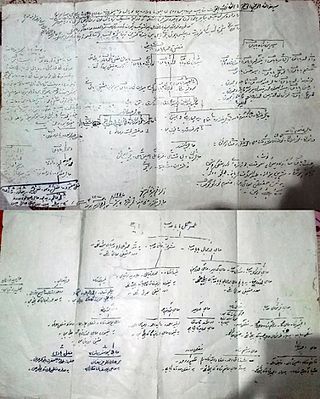Top Qs
Timeline
Chat
Perspective
Khwaja Khel (Khwajgan)
Ethnic group From Wikipedia, the free encyclopedia
Remove ads
Khwaja Khel,(خواجه خېل), also known as Khwajgan is a clan or family settled in different parts of Swat valley, including Bara Bandai, Mingora, Barikot,[1] Charbagh and Dakorak. Additionally, some Khwajgan families can also be found in areas like Zhob Loralai and Tank districts of Balochistan and Khyber Pakhtunkhwa.
Remove ads
Origin
Summarize
Perspective
The origins of the Khwajakhel family, like those of other Pashtun tribes, have long been steeped in mystery and tradition. However, a recent DNA study has unveiled intriguing insights into their ancestral heritage, shedding light on their storied lineage. The study suggests that the Khwajakhel family is native to the Swat valley, as their DNA matches with remains found in various historical sites across the valley, such as Barikot, Saidusharif, Loebanr, and Aligrama, dating back to between 900 BC and the 1300 CE. This finding challenges previous assumptions and suggests that the Pashtuns in the region, rather than migrating there, are actually indigenous to the valley.
Further analysis of the DNA revealed that the Khwajakhel family has ancestral roots in Swat from the pre-Yusufzai era, distinct from the Yusufzai tribe. The name "Khwajakhel" itself likely originated due to the family's connections with Muslim Khatris. The Khatri community, which is often associated with trade and commerce, has been linked to the Pashtun Khattak tribe, according to historian B. N. Puri, who noted that Khatris were often referred to as Khojas or Khwajas.

Khwajgan, as the plural for "Khwāja". The title "Khawaja" is an honorific used across many cultures, particularly in South Asia, the Middle East, and Central Asia, often given to revered figures such as Sufi teachers or spiritual leaders. It is derived from the Persian word khwāja, which means "lord" or "master". It is also used by Kashmiri Muslims[2][3] and Mizrahi Jews—particularly Kurdish Jews.[4] The name or title Khawaja was usually given in Arab lands to non-Muslim dignitaries, usually to Jews or Christians. The word comes from the Persian word khwāja. In Persian, the title roughly translates to 'Lord' or 'Master'.[5]
The Ottoman Turkish pronunciation of the Persian khwāja gave rise to hodja and its equivalents such as hoca in modern Turkish, hoxha in Albanian, խոջա (xoǰa) in Armenian, xoca (khoja) in Azerbaijani,[6][7] hodža/хоџа in Serbo-Croatian, ходжа (khodzha) in Bulgarian, χότζας (chótzas) in Greek, and hoge in Romanian.

Thus, the Khwajakhel family's connection to the name "Khwaja" is likely due to their historical ties with the Khatri community, and their legacy of spiritual or noble significance linked to the use of the title "Khawaja". The study suggests that the Khwajakhel family has deep historical roots in the Swat valley, confirming their long-standing presence in the region.
Remove ads
Settlements
In the 18th century, Khwajgan were settled in a village of Kabal Tehsil named Tall Dardiyal and took the profession of business into their hands. Over time, Khwajakhel was relocated to Pir Kaley Matta in the relocation system of Swat State. After some years they were again relocated to Bara Bandai Dakorak, Charbagh with the same system, and lands were allotted to the family in the village they settled. In the 20th century, some of the Khwajgan migrated from Bajaur Agency and started their journey of life in some areas of upper swat such as Sijband and Shokhdarra of Matta Tehsil.[8]
Remove ads
Recent settlement

The first known people of the Khwajgan family at Swat were Fazal Ahmad Shah and Habib Shah. Fazal Ahmad Shah had three sons Sayyaden Shah, Nawab Shah, and Muhammad Shah who are now descended to almost eight generations. In the 20th century, after the urbanization of The Yusafzai State of Swat due to their business needs, Khwajgan settled in different towns and cities of Swat. Mostly in Bara Bandai, Mingora, Sangota, Charbagh, Barikot, Matta, Sijband.[citation needed]
See also
Bibliography
- Masters Of Wisdom: An Esoteric History of the Spiritual Unfolding of Life on This Planet by J.G. Bennett, ISBN 0-87728-466-0
- Masters Of Wisdom of Central Asia by Hasan Shusud, ISBN 0-900306-93-9
- The Teachers of Gurdjieff by Rafael Lefort, ISBN 0-87728-213-7
- The Naqshbandi Sufi Way, History and Guidebook of the Saints of the Golden Chain by Shaykh Muhammad Hisham Kabbani, Kazi Publications, USA (1995), ISBN 0-934905-34-7
Remove ads
References
External links
Wikiwand - on
Seamless Wikipedia browsing. On steroids.
Remove ads

